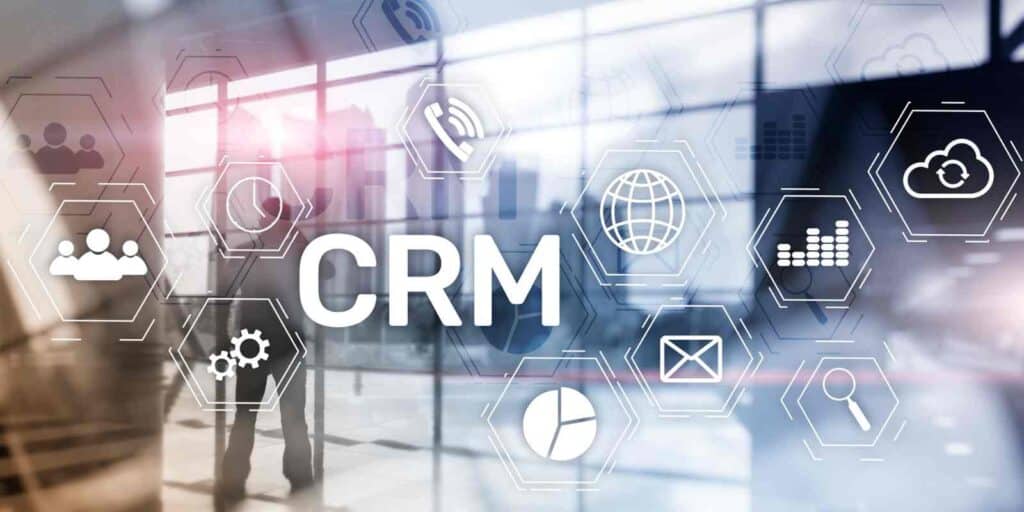Increasing Engagement with Clients with CRM

Customer Relationship Management (CRM) is a powerful tool that can revolutionize the way businesses interact with their clients. By implementing a CRM system, businesses can streamline their processes, improve customer satisfaction, and ultimately increase engagement with their clients. In this article, we will explore the benefits of using CRM to enhance client engagement and provide valuable insights on how businesses can leverage this technology effectively.
The Importance of Client Engagement
Client engagement is crucial for the success of any business. Engaged clients are more likely to be loyal, make repeat purchases, and refer others to the business. According to a study by Gallup, engaged clients generate 23% more revenue than average clients. Therefore, it is essential for businesses to focus on strategies that can enhance client engagement.
What is CRM?
CRM stands for Customer Relationship Management. It is a technology that helps businesses manage their interactions and relationships with clients. A CRM system allows businesses to store and organize client data, track interactions, and automate various processes. It provides a centralized platform for businesses to manage their sales, marketing, and customer service activities.
The Benefits of CRM for Client Engagement
Implementing a CRM system can have numerous benefits for client engagement. Let’s explore some of the key advantages:
- Improved Communication: A CRM system enables businesses to have a 360-degree view of their clients. This means that all client interactions, including emails, phone calls, and meetings, can be tracked and recorded in one place. This allows businesses to have a complete understanding of their clients’ needs and preferences, leading to more personalized and effective communication.
- Enhanced Customer Service: With a CRM system, businesses can provide better customer service by having access to all relevant client information. When a client contacts the business, the customer service representative can quickly retrieve the client’s history, preferences, and previous interactions. This enables the representative to provide a more personalized and efficient service, leading to higher client satisfaction.
- Targeted Marketing: A CRM system allows businesses to segment their clients based on various criteria such as demographics, purchase history, and preferences. This segmentation enables businesses to create targeted marketing campaigns that resonate with specific client groups. By delivering personalized and relevant content, businesses can increase client engagement and drive higher conversion rates.
- Streamlined Sales Process: CRM systems provide businesses with tools to manage their sales pipeline effectively. By tracking leads, opportunities, and deals, businesses can identify bottlenecks in the sales process and take appropriate actions. This ensures that sales representatives are focused on the right opportunities and can provide timely follow-ups, leading to increased client engagement and higher conversion rates.
- Improved Collaboration: CRM systems facilitate collaboration among team members by providing a centralized platform for sharing client information. This enables different departments, such as sales, marketing, and customer service, to work together seamlessly. By having access to the same client data, team members can provide consistent and coordinated support to clients, resulting in a better overall client experience.
Case Study: XYZ Company
Let’s take a look at a real-life example of how CRM helped a company increase client engagement. XYZ Company, a software development firm, implemented a CRM system to streamline their sales and customer service processes.
Prior to implementing CRM, XYZ Company faced challenges in managing their client interactions. Sales representatives had to manually track leads and deals using spreadsheets, resulting in a lack of visibility and coordination. Customer service representatives struggled to provide personalized support as they had limited access to client information.
After implementing CRM, XYZ Company experienced significant improvements in client engagement. Sales representatives were able to track leads and opportunities more effectively, resulting in a higher conversion rate. They could also provide timely follow-ups and personalized communication, leading to increased client satisfaction.
Customer service representatives had access to a complete client history, enabling them to provide more efficient and personalized support. This resulted in faster resolution of client issues and higher customer satisfaction ratings.
Overall, CRM helped XYZ Company enhance their client engagement by improving communication, streamlining processes, and providing better customer service.
How to Leverage CRM for Increased Client Engagement
Now that we understand the benefits of CRM for client engagement, let’s explore some strategies to leverage this technology effectively:
- Collect and Centralize Client Data: Start by collecting and centralizing all relevant client data in your CRM system. This includes contact information, purchase history, preferences, and any other relevant details. The more comprehensive your client data, the better you can understand and engage with your clients.
- Segment Your Clients: Use the segmentation capabilities of your CRM system to divide your clients into different groups based on demographics, behavior, or preferences. This will allow you to create targeted marketing campaigns and personalized communication that resonates with each client segment.
- Automate Routine Tasks: Take advantage of the automation features of your CRM system to streamline routine tasks. This will free up time for your team members to focus on more meaningful client interactions. For example, you can automate email campaigns, follow-up reminders, and lead nurturing processes.
- Integrate with Other Systems: Integrate your CRM system with other tools and platforms that your business uses. For example, integrate your CRM with your email marketing software, e-commerce platform, or customer support system. This will ensure that all client interactions are captured and recorded in your CRM system, providing a complete view of each client.
- Train Your Team: Provide comprehensive training to your team members on how to effectively use the CRM system. Ensure that they understand the benefits of CRM for client engagement and how it can improve their day-to-day activities. Encourage them to regularly update client information and track interactions in the CRM system.
CRM is a powerful tool that can significantly enhance client engagement. By implementing a CRM system, businesses can improve communication, provide better customer service, and streamline their sales and marketing processes. The benefits of CRM for client engagement include improved communication, enhanced customer service, targeted marketing, streamlined sales process, and improved collaboration.
By leveraging CRM effectively, businesses can collect and centralize client data, segment their clients, automate routine tasks, integrate with other systems, and provide comprehensive training to their team members. These strategies will help businesses increase client engagement, drive higher conversion rates, and ultimately achieve greater success.
Visit https://SaasExpert.ca – Your All-In-One Sales and Marketing Platform for small businesses, agency owners, and marketers to learn more about how CRM can revolutionize your client engagement strategies.
Learn more about “Strengthening Relationships with Customer with CRM” right here.
Frequently asked questions about Increasing Engagement with Clients with CRM.

FAQ 1: How can CRM tools drive up client engagement levels? 🚀
Answer: CRM tools are the secret sauce to spicing up your client engagement! They’re like having a personal assistant who knows your clients inside out. 🧠 By leveraging CRM, you can automate personalized emails, set reminders for follow-ups, and even send out custom-tailored content that resonates with each client’s interests and needs. 💌 It’s all about making your clients feel like they’re the center of your business universe. With CRM’s data-driven insights, you can anticipate their needs, celebrate their milestones, and engage in meaningful conversations that keep the spark alive! 💡
FAQ 2: What CRM strategies can help personalize client interactions? 🎨
Answer: Personalizing client interactions is an art, and CRM is your canvas. To paint the perfect picture, consider these strategies:
Segmentation: Group your clients based on behavior, needs, or demographics to tailor your communication. 🎯
Behavior Tracking: Use CRM to note down client actions and preferences, crafting a personalized experience. 🕵️
Automated Workflows: Set up triggers for special occasions like birthdays or anniversaries to send customized messages. 🎂
Client Histories: Keep a detailed log of past purchases and interactions to make relevant recommendations. 📚
By applying these strategies, you’ll make each client feel like your only client, fostering a deeper connection. 🌟
FAQ 3: Can CRM improve client response rates to campaigns? ✉️
Answer: Definitely! Think of CRM as your campaign’s backstage crew, setting the stage for a standing ovation. 🎭 By segmenting your audience and crafting messages that hit home, CRM helps you send the right message to the right people at the right time. 🕒 It’s like knowing exactly when your clients are most likely to engage and dropping in at that moment with something they can’t ignore. Plus, with A/B testing and analytics, you can continuously refine your approach, ensuring your campaigns get the applause they deserve. 👏
FAQ 4: How does CRM facilitate real-time client engagement? ⏱️
Answer: In today’s fast-paced world, real-time engagement is the name of the game, and CRM is your MVP. 🏆 With features like live chat, social media integration, and mobile accessibility, CRM allows you to connect with clients whenever and wherever. 📲 It’s like having a direct line to your clients’ thoughts and needs, allowing you to respond with lightning speed and relevance. This immediacy not only delights clients but also builds a reputation for your brand as attentive and responsive. ⚡
FAQ 5: What role does CRM play in understanding client feedback? 📢
Answer: CRM plays the role of your business’s listening ear, tuned into the frequencies of client feedback. 🎧 It collects feedback from various channels, whether it’s direct surveys, social media, or customer support interactions. By analyzing this goldmine of data, CRM helps you understand the voice of your client—what makes them happy, what irks them, and what they’re craving more of. 🍽️ With this knowledge, you can make data-backed decisions to enhance your services and products, showing your clients that their opinions don’t just matter—they make a difference. 🌈






